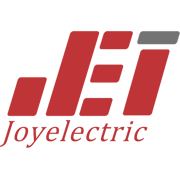ISO 9001 Certification: Ensuring Quality Standards
When it comes to exporting machined components worldwide, having ISO 9001 certification is crucial. This quality management system certification ensures that the company's processes meet international standards, increasing customer trust and marketability.
AS9100 Certification: Meeting Aerospace Industry Standards
For machined components destined for the aerospace industry, AS9100 certification is a must. This certification includes additional requirements specific to the aerospace sector, ensuring that the components meet the strict standards set by the industry.
ISO 14001 Certification: Commitment to Environmental Responsibility
In today's environmentally conscious world, having ISO 14001 certification demonstrates a company's commitment to minimizing its environmental impact. This certification is important for companies exporting machined components worldwide, as it assures customers of the company's environmental responsibility.
TS 16949 Certification: Quality Management for the Automotive Industry
Automotive industry customers require machined components that meet their specific quality standards. TS 16949 certification focuses on quality management systems tailored to the automotive industry, making it essential for companies looking to export components to this sector.
NADCAP Certification: Ensuring Aerospace Component Quality
NADCAP certification is a global cooperative accreditation program for aerospace engineering, defense, and related industries. This certification ensures that machined components meet the rigorous quality standards required by the aerospace sector, making it a key certification for companies exporting worldwide.
CE Marking: Compliance with European Standards
For companies exporting machined components to the European market, CE marking is essential. This marking indicates that the product meets European health, safety, and environmental protection standards, allowing for easy market access within the EU.
RoHS Compliance: Meeting Restriction of Hazardous Substances Directive
RoHS compliance is crucial for companies exporting machined components worldwide, especially to countries within the European Union. This directive restricts the use of certain hazardous substances in electrical and electronic equipment, ensuring product safety and environmental protection.
UL Certification: Ensuring Electrical Component Safety
For machined components that are part of electrical systems, UL certification is crucial. This certification ensures that the components meet specific safety standards set by Underwriters Laboratories, giving customers confidence in the product's safety and reliability.
REACH Compliance: Adhering to Chemical Regulations
REACH compliance is essential for companies exporting machined components worldwide, as it ensures adherence to European Union regulations on chemicals and their safe use. This certification demonstrates a company's commitment to chemical safety and environmental protection.
ITAR Registration: Meeting U.S. Regulatory Requirements
For companies exporting machined components with military or defense applications, ITAR registration is required. This registration ensures compliance with U.S. regulations governing the export and import of defense-related articles and services.

